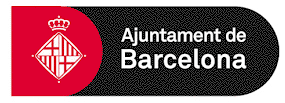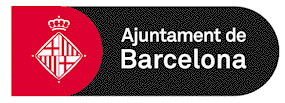Suso de Toro
El Diario.es (2013-09-12)
For decades the Spanish media based in Madrid created an idea of Spain that distorted reality. In this misrepresentation Catalonia was both ignored and dismissed by way of self-serving clichés, and as a result most of the Spanish population knows nothing about Catalonia and is full of prejudices about the Catalans. The media painted us a picture of a Catalonia that is provincial, closed, dull, unsuccessful, obsolete... But the Diada this year marks a turning point that contradicts all of this and has revealed a country full of energy. From now on there will be some Spaniards who look at Catalonia with curiosity, others with fear and mistrust, but many will want to understand what has happened. And what has happened was foreseeable for anyone who had taken a closer look and bothered to listen to what people living there were saying and feeling, all of which had simply been hidden from them. Instead, just about every month the Spanish press would do a fresh story on how a child couldn't receive schooling in the Spanish language, that bullfighting was being persecuted... It seemed to be nothing more than a few petty issues. And then all of a sudden more than a million Catalans were demanding independence. Where had all these people been that no one had ever told us about?
Although it might seem hard to believe, the day after this important civic and political event (I don't know if there is anything similar to it in Europe) we could read headlines that scoffed at it and news reports that undervalued it, which only further fed the blindness of their readership. What has happened in Catalonia is exemplary and has made history in terms of democratic struggles. And it is not the first time Catalonia has offered us a lesson. But lessons are only learned by those who don't harbor prejudices and by those who wish to learn. In my case I am aware that I have my prejudices but I also like to learn, and I have learned a great deal from the Catalans. Even though it is frowned upon in Spain, I am not ashamed to admit that I admire Catalan society.
As a Galician, I am a citizen of a defeated country that has been incapable of overcoming its history, which failed to stop depredations and humiliations, is missing a collective pride and civic nerve. As a Spaniard, I come from a fratricidal and uncivil country, marked by a regime that deteriorated the country to a deplorable state, and a traumatic and deep-set historical experience that is often deliberately dismissed as "the dictatorship." And this is why I envied the seeds of freedom and civility that came out of Catalonia, from the "Rosa Sensat" pedagogical renewal, when education was still seen as a means of liberating, to the workers' struggle of the PSUC and the libertarians, the resolve in Pau Casals's exile, the nova cançó and Lluis Llac's songs "al`Olimpia" and also his "Campanades a mort" dedicated to the assassinated workers in Vitoria, Catalonia's struggle for national self-government...
In Barcelona I discovered a city always attentive to culture, which hosted the music of Beethoven and Wagner in its Palau de la Música, where in July of 1937 Schoenberg rehearsed with the orchestra "Moses und Aron" when the Fascist bombings began, where Picasso and Picabia rehearsed their freedom, the city that was a pilgrimage destination for Don Quixote, and with him his author, to the glory of the book industry.
As an author in Catalonia I felt warmly received and respected without it mattering what language I wrote in or where I was from or who my relatives were, there I met my publisher and the best editors and the most intelligent and the sharpest people in the book industry and the arts. And I found myself before literary works such as "Quadern Gris" (The Grey Notebook) by Josep Pla, which if Spain happened to consider literature in Catalan to belong to the Spanish literary canon (which is not the case), it would be one of their four or five major works of the twentieth century. Naturally, I also saw the limits and the shortcoming of Catalan society, it has them just as every other society does, but my admiration for its virtues is far greater. Without being Catalan I am a Catalanist, I confess.
I can sum it all up by saying that at one point in my life I found myself forced, for the first time, to have to think about leaving Galicia, and I had no doubt about where I would go and where there was an open society that could take me in. I had no doubt about it.
And with this Diada the Catalans have given us a new lesson in civility and freedom. To understand just how necessary this lesson is we should be aware of what happened that same day in Madrid; a Fascist attack that is not a mere anecdote. We will be able to measure the level of freedom and the general climate in Madrid and in the Spanish state by how they treat this attack: will they apply the anti-terrorism law? Will these organizations be made illegal and persecuted as the Spanish politicians and judiciary did in the Basque Country? And when plenty of well-armed policemen appear each time citizens legitimately defend their rights, why weren't they nearby this time to protect these citizens? I find it disgusting.
On their national day what the Catalans offered us was a free and joyful citizenry against embittered thugs and roughnecks. In response to the minister who threatened with sending in the Spanish army, people of all ages opposed him with sandwiches, t-shirts and flags. It will be impossible to grasp the true dimension of this great civic event if we don't realize that it wasn't a demonstration like the one we saw a few months ago. The Catalan Way was the result of months of organized planning; each person registered and directed themselves to their assigned spot along the route. Things had not heated up in a day or week, and it wasn't the kind of anger that brings people out on the streets. Instead, each citizen went out and found a t-shirt and signed up ahead of time for a spot. It was not a crowd of protestors but instead a citizenry that had organized itself voluntarily and from the grassroots level; we are talking about a determined people with a clear intent. It is a decision that has matured tremendously over the years following the repeated experiences that showed time and again that the Spanish state did not recognize their demands and did not protect their language or their interests. It was not a spontaneous event.
In recent years, every time I discussed the Catalan social and political process with politicians from Spanish political parties they always answered "but [President] Mas...", "what Convergència really wants is...", "...the flags...", "but the Catalan bourgeoisie...", "but Esquerra..." No matter how much I insisted they repeated their comfortable prejudices and they reduced it all to a political party dialectic, and hardly any were humble enough to travel from Madrid to Barcelona, never mind to any other Catalan city, to ask questions and listen to the people. They didn't understand that it was the people and not the political parties; Artur Mas put himself at the head of this deeply rooted social movement because he had no other choice. What the media in Madrid and Spanish politics did was belittle the Catalans, reducing them to a people that had been put under a spell and astutely manipulated by malevolent political enemies of Spain. What they did was deny the Catalans a sense of personal dignity, precisely to those people who had always given a civics lesson to Spain. The Catalans have many flaws, but they are a society with a civic complexity and depth that is like no other I know. What we have before us is the reality, all this time the Catalans were not a bunch of leeches that sought to exploit the rest of Spain, as we had been told, but instead they had dignity. Loads of collective and personal dignity.
For now we can only learn from Catalonia. Paul Celan wrote about a Germany that was a master of death, Catalonia in exchange is a master of civility. It would have been much better for Spain if it had listened to it and learned its lessons. I don't want to imagine a Spain without Catalonia.
The Francoists will invoke the sacred unity of the motherland and the duty of the Spanish army, even though they didn't do so when they handed over the Spanish provinces in the Sahara to the Moroccan monarchy at the behest of their American masters. And Spanish nationalists in general will invoke a Constitution dictated by Jehovah and that Moses carried down from the Mount (when it was first drawn up they already had people in the Constitutional Court who interpreted it in a way that best suited their interests, and they have Pérez de los Cobos presiding the Court), that already gave us their opinion of the Catalans. But those of us who believe in democracy and are not Catalans have the duty to recognize that they are simply exercising democracy and their freedom. All we can do is try to imagine how Catalonia can become what its citizens freely desire it to be, and hope that this doesn't mean they will become strangers to us. This is how we feel.
Suso de Toro is a Galician writer.
Translated from Spanish by Margaret Luppino
Photo by Margaret Luppino








